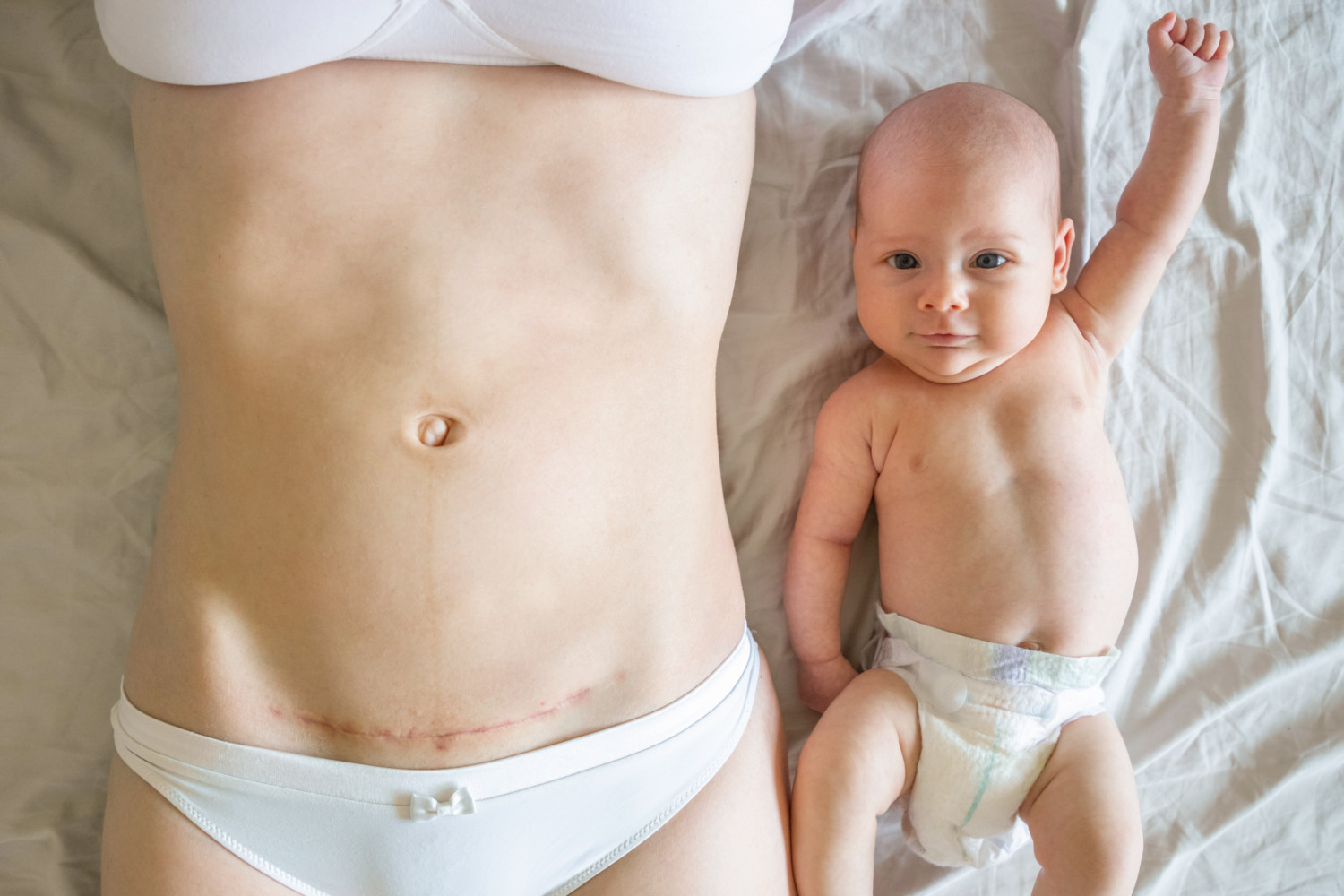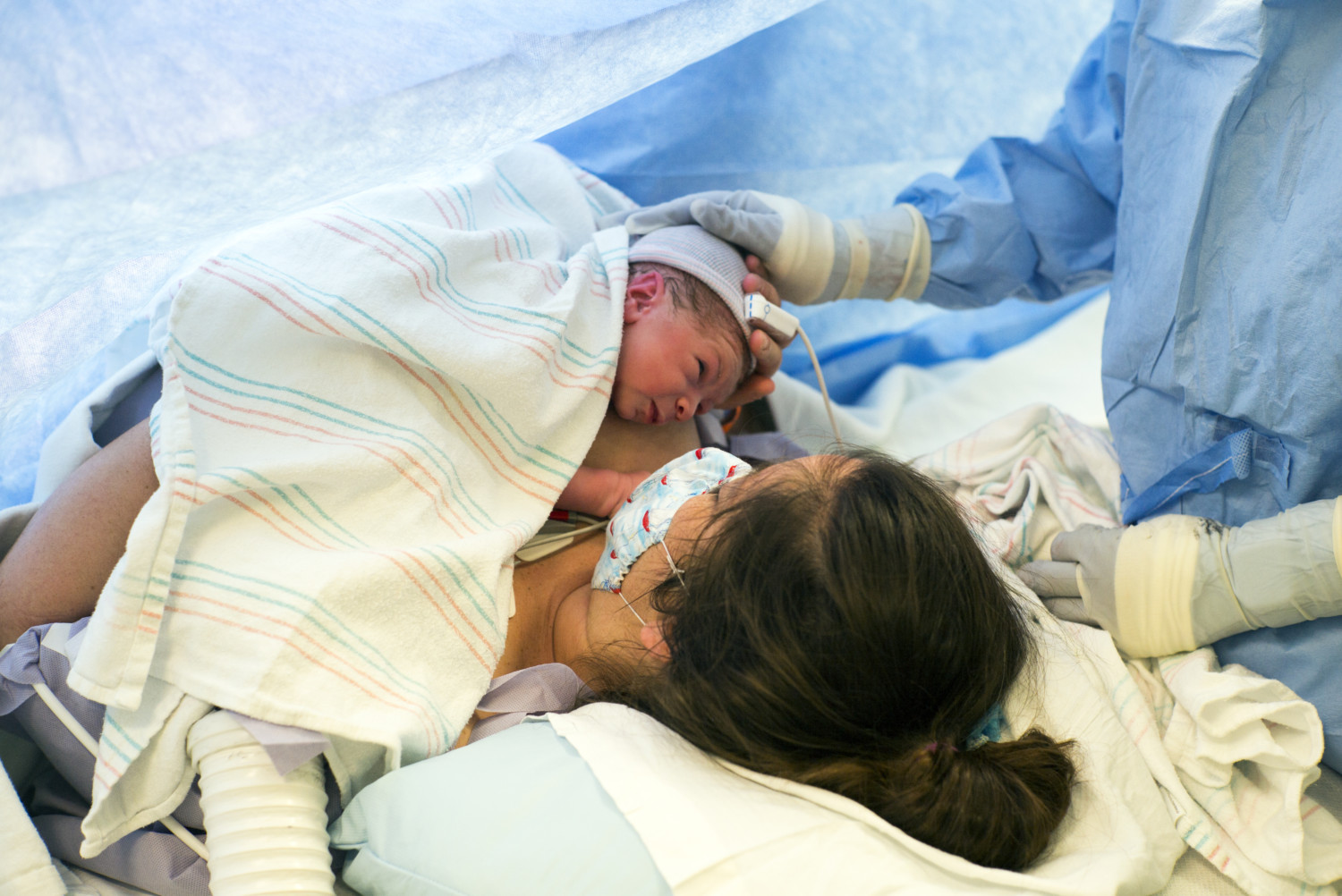Fair warning: this story is going to have some interesting new ideas that many will find disgusting — but that’s often par for the course with parenting.
A new scientific study showed that giving infants who were born via cesarean section a small sample of their mother’s feces to ingest could actually help kick start their immune system. Ok, stick with us here.
The results from this eye-opening study were published in the Oct. 1 issue of the peer-reviewed scientific journal Cell, and they may understandably cause some retching among the readership.
The idea of willfully feeding your beautiful newborn baby some poop sounds like a form of child abuse but it turns out there would be a great reason to do it. You see, babies need to ingest some of their mom’s gut bacteria to promote their own health and development and this is something that C-section babies partly miss out on.

Last year, scientists revealed research that showed babies born vaginally received more of their mother’s gut bacteria than those born via C-section. During vaginal birth, a baby is naturally introduced to mom’s fecal matter during delivery, which then transfers her helpful bacteria into the baby’s system.
Due to the streamlined nature of a C-section delivery, the babies born this way miss out on much of that exposure.
Armed with this information, some scientists in Finland set out to figure out a natural way to provide those same benefits to the millions of kids missing out on this boost. In America alone, more than 1.2 million babies are born every year via C-section, according to the Centers for Disease Control and Prevention.

While the thought of giving a baby a cocktail of breast milk and mom’s poop admittedly sounds gross, it becomes less so when you understand that exposure to feces is a normal part of vaginal birth.
“Feces is always part of the delivery process,” Dr. Bo Jacobsson, an obstetrician and professor at the University of Gothenburg who was not part of the study’s research team, told The Scientist magazine. “From a scientific point of view, [the researchers] have done the right thing.”
Scientists collected stool samples from 17 pregnant women and tested them extensively to determine if any harmful bacteria was present in their body. From those women, seven were selected to move forward with the study. After the babies were born, they were given the dose of live fecal bacteria in their first 5 milliliters of breast milk.

The infants were then watched closely in the hospital for any side effects before being discharged. Doctors continued to monitor the babies through their three-month checkups. None of the babies showed any side effects to the treatment and the results showed an increase of the healthy bacteria in their system.
While the sample size was small, scientists believe the proof of concept is a good start toward finding ways to improve C-section newborn and infant immunity. Previous research showed that babies born via C-section have a “slightly higher risk for immune-related conditions such as asthma, inflammatory bowel disease and other allergic conditions.”
Experts warned, though, that this treatment was done with close medical supervision and should not be tried by parents on their own with their newborns.
Dr. Alison Cahill, chair of the American College of Obstetricians and Gynecologists’ Obstetrics Clinical Consensus Committee, told Newsweek that trying to do this procedure as an at-home experiment could “pass on disease-causing bacteria or viruses.”
She instead suggested that new moms can breastfeed for up to the first six months to provide their babies with similar benefits.
This story originally appeared on Simplemost. Checkout Simplemost for other great tips and ideas to make the most out of life.


